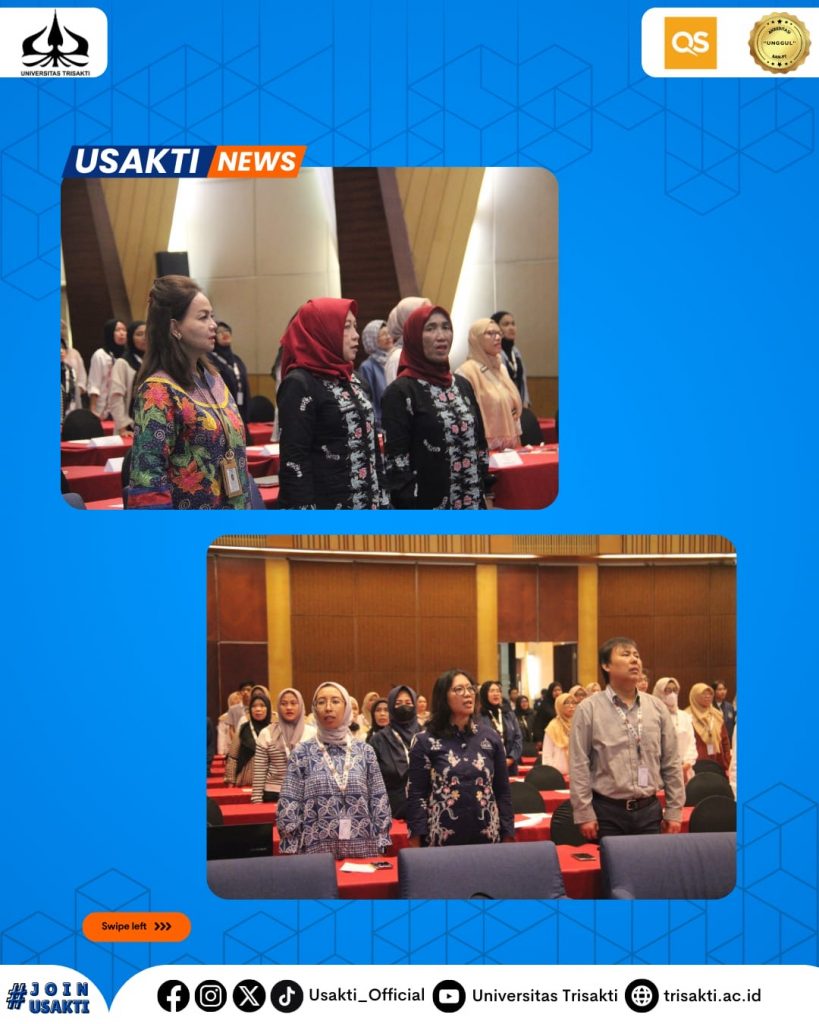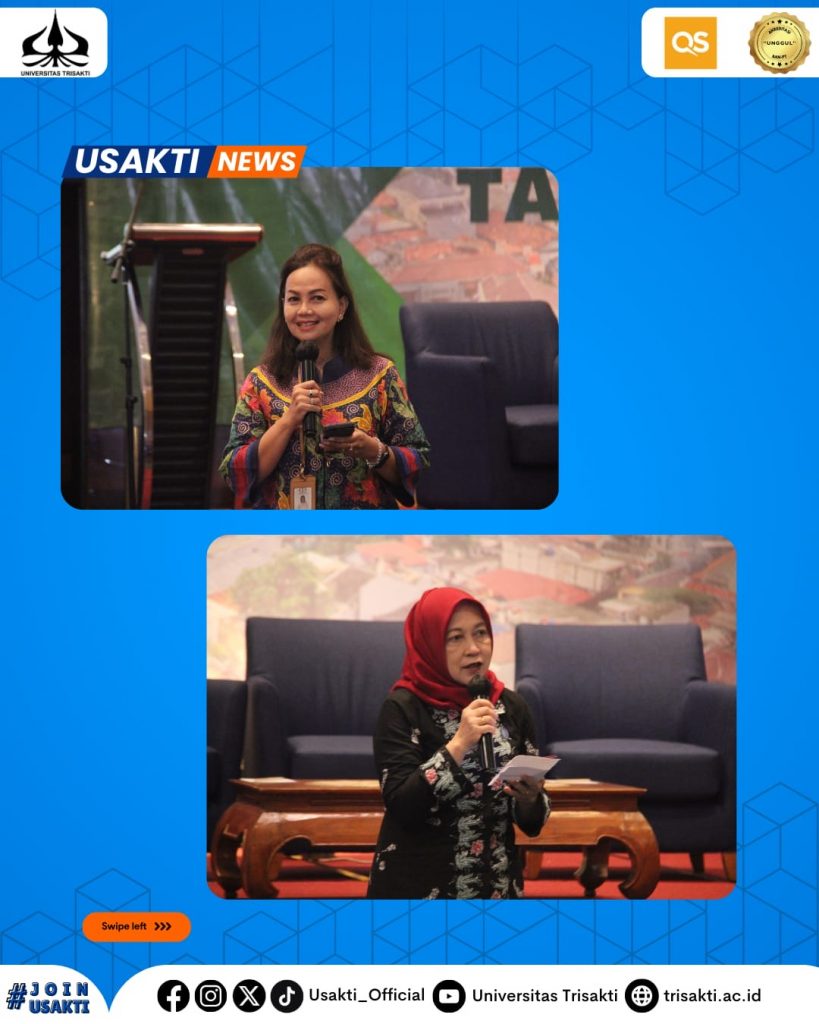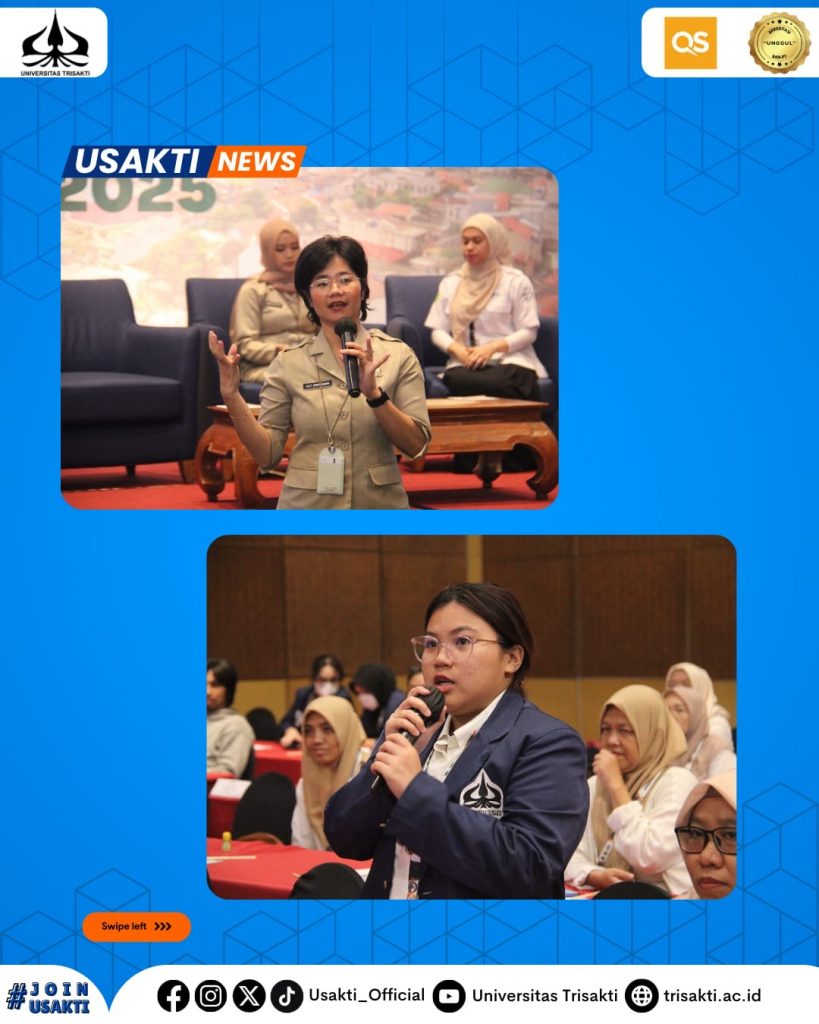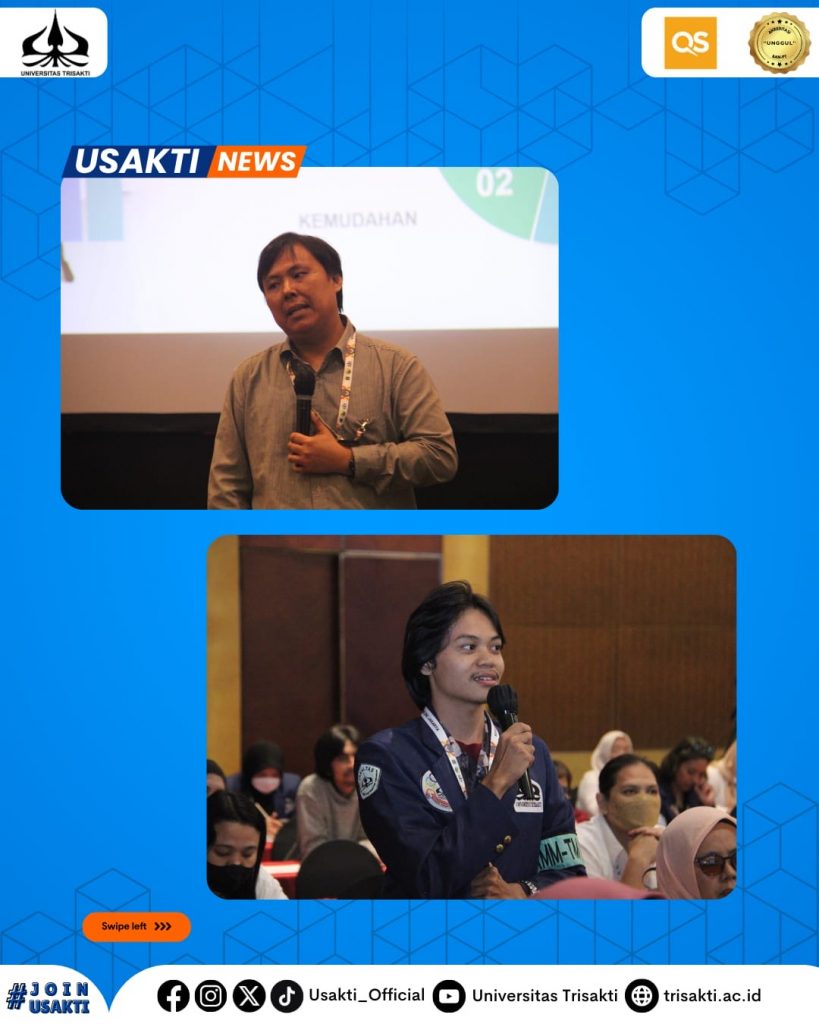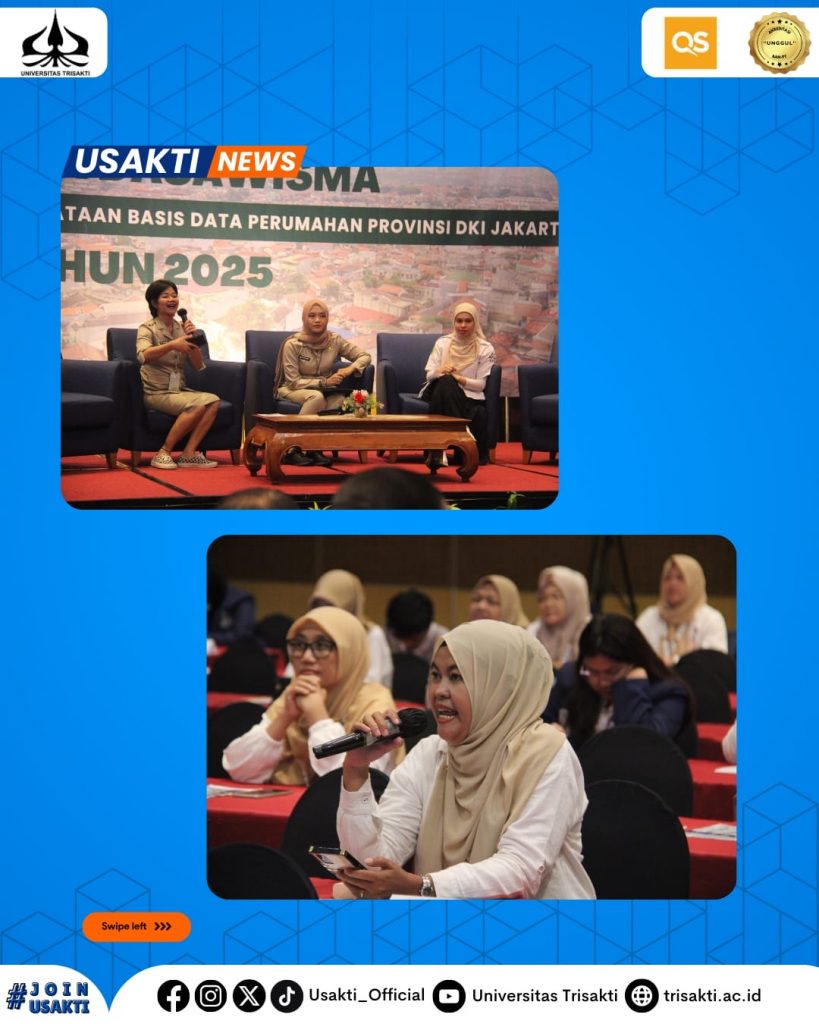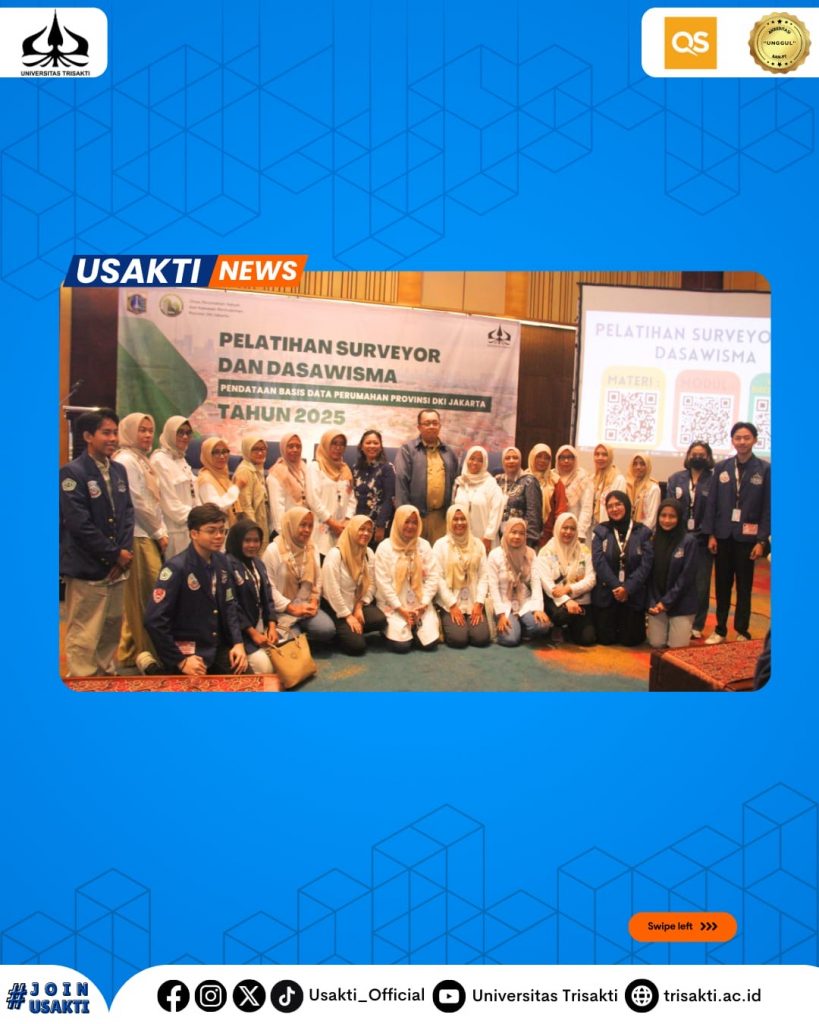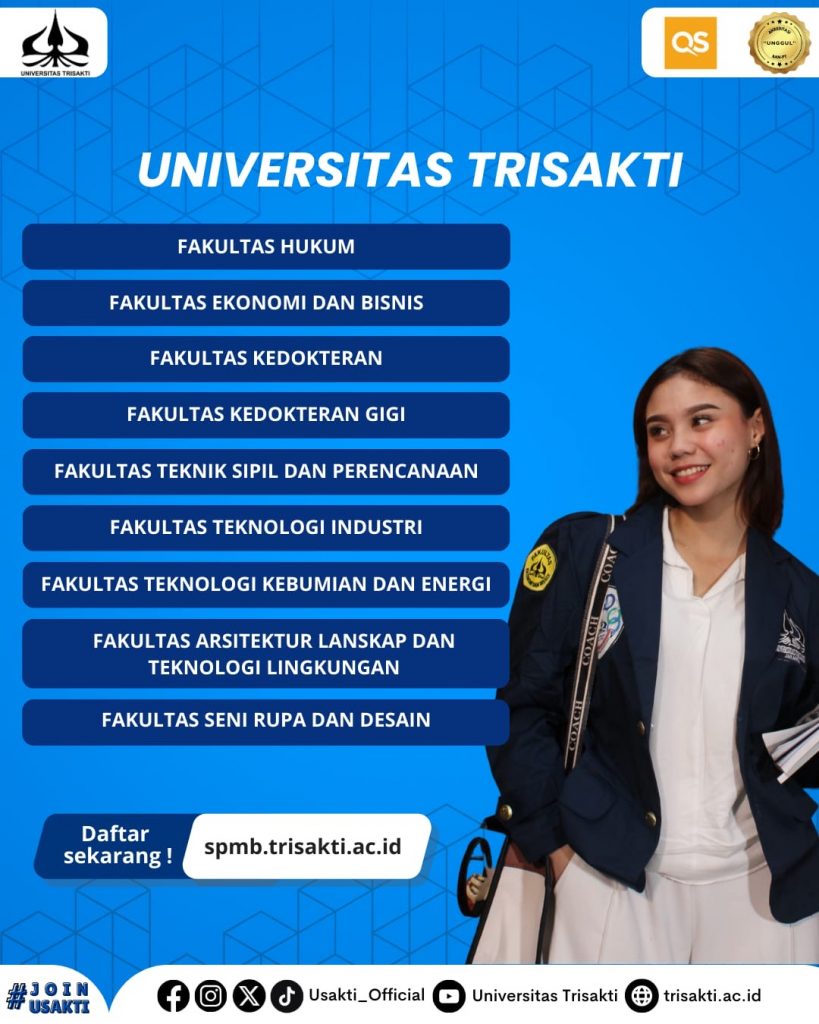Contact Us
- JL. Kyai Tapa No. 1 Grogol
- Jakarta Barat, Indonesia
- Phone:
- (62-21) 566 3232
- Whatsapp:
- (+62) 882 194 856 74
- (+62) 877 707 077 03
- Fax: (62-21) 564 4270
- Email: humas@trisakti.ac.id
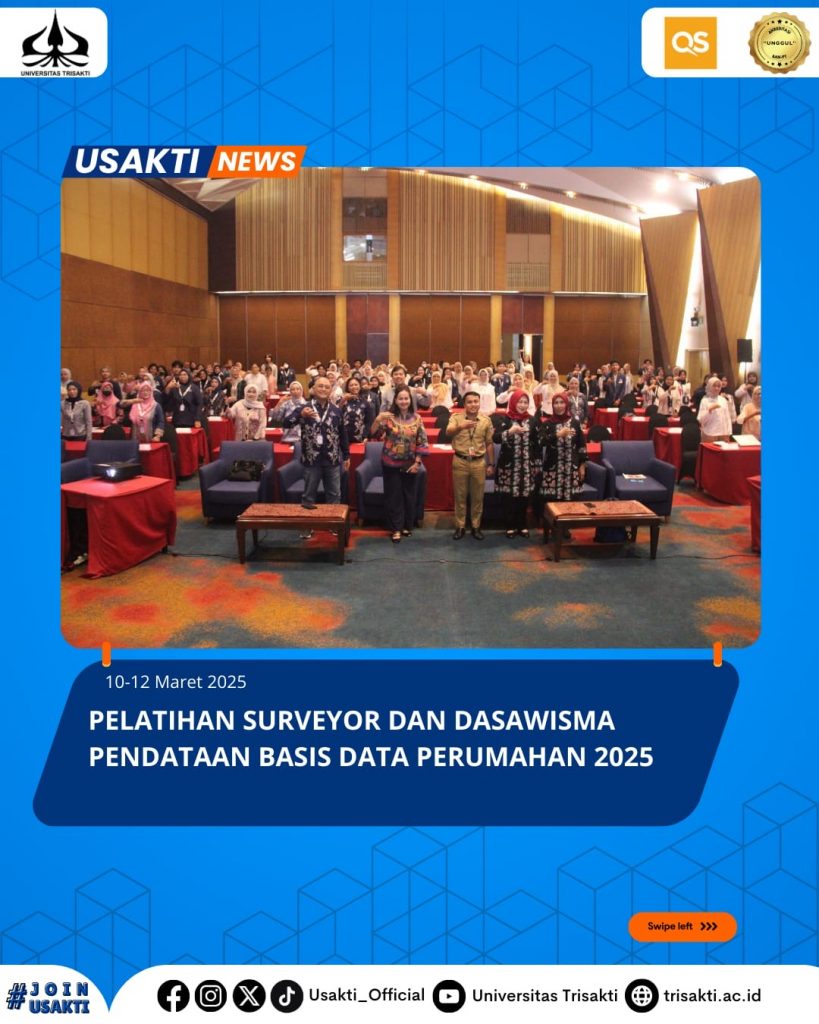
Universitas Trisakti, in collaboration with the Jakarta Provincial Office of Housing and Settlement Areas, successfully conducted the Surveyor and Dasawisma Training for Housing Database Collection. The training sessions were held on Monday, March 10, 2025, at Hotel Ciputra, and Wednesday, March 12, 2025, at Hotel Samala, West Jakarta. The event was attended by surveyors and dasawisma representatives from the Pekojan, Duri Selatan, Maphar, Kota Bambu Utara, Kembangan Utara, and Kapuk sub-districts.
The event was officially opened by Prof. Dr. Ir. Astri Rinanti, M.T., IPM., ASEAN Eng., Director of the Institute for Research and Community Service (LPPM) at Universitas Trisakti. In her opening remarks, she emphasized the importance of scientific data collection in housing planning and management. She reiterated Universitas Trisakti’s commitment to supporting housing data collection programs through research and innovation. Additionally, she encouraged participants to understand the correct methodologies for data collection and analysis to ensure the accuracy of information for more effective housing policies.
Prasti Amayanti, from the Jakarta Provincial Family Empowerment and Welfare Movement Team (TP PKK), highlighted the active role of dasawisma in assisting the government with housing data collection. She stressed that data collected by dasawisma members is crucial for developing community welfare programs, particularly in housing and environmental sectors. She expressed hope that this training would broaden participants’ understanding of proper data collection methods, ensuring real benefits for the community.
The Jakarta Provincial Office of Housing and Settlement Areas (DPRKP) provided technical training sessions covering various aspects of housing data collection. The first session introduced fundamental concepts, including an overview of the FPPR Program, the SIRUKIM Application, and financing programs from the Ministry of Housing and Settlement Areas (PKP). Participants from different sub-districts gained insights into the importance of accurate data in designing effective housing policies.
The second session focused on building reliability assessments and infrastructure data collection, covering roads and drainage systems, supplemented by case studies and interactive discussions. The third session introduced the dasawisma data approach, explaining operational definitions and aligning DPPAPP survey data with dasawisma data to ensure consistency and accuracy.
The fourth session, presented by the Jakarta Provincial Office of Public Works and Spatial Planning, introduced the Field Maps Application, which enables digital field data collection for improved efficiency and accuracy. This session was attended by university students, who received hands-on training on operating the application. The fifth session involved a survey simulation, where students conducted real-time data collection using smartphones, applying the methodologies they had learned. This simulation aimed to ensure participants could effectively implement theoretical knowledge in real-world scenarios.
The training program ran smoothly and received enthusiastic participation from attendees. It is hoped that the knowledge and skills gained through this training will enable participants—particularly Universitas Trisakti students—to contribute accurate housing database records, which will serve as a foundation for future housing development planning in Jakarta.

